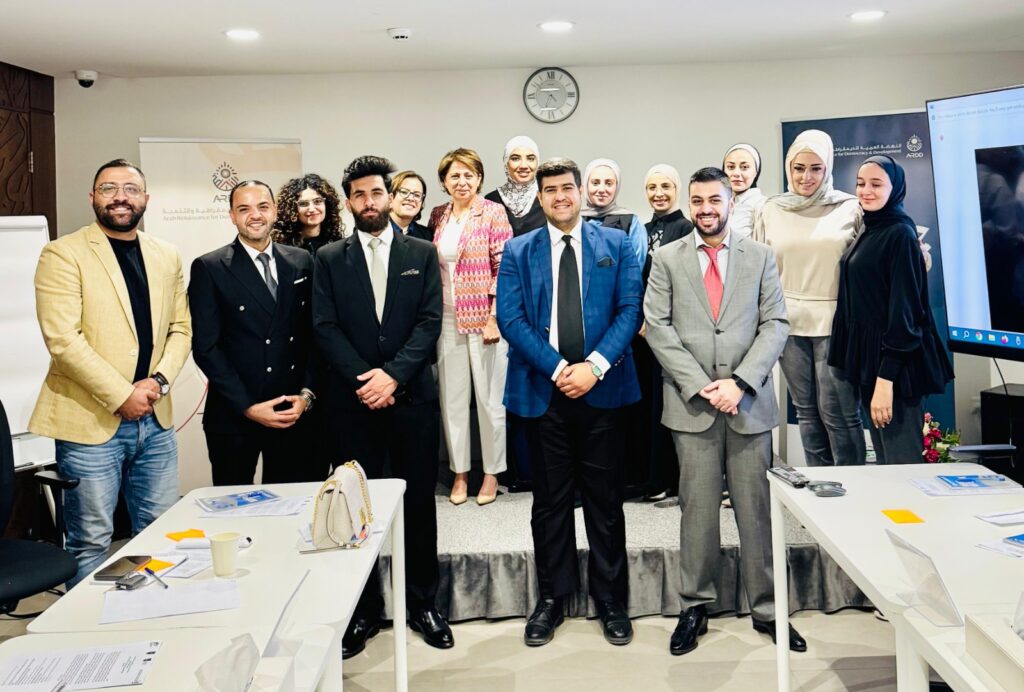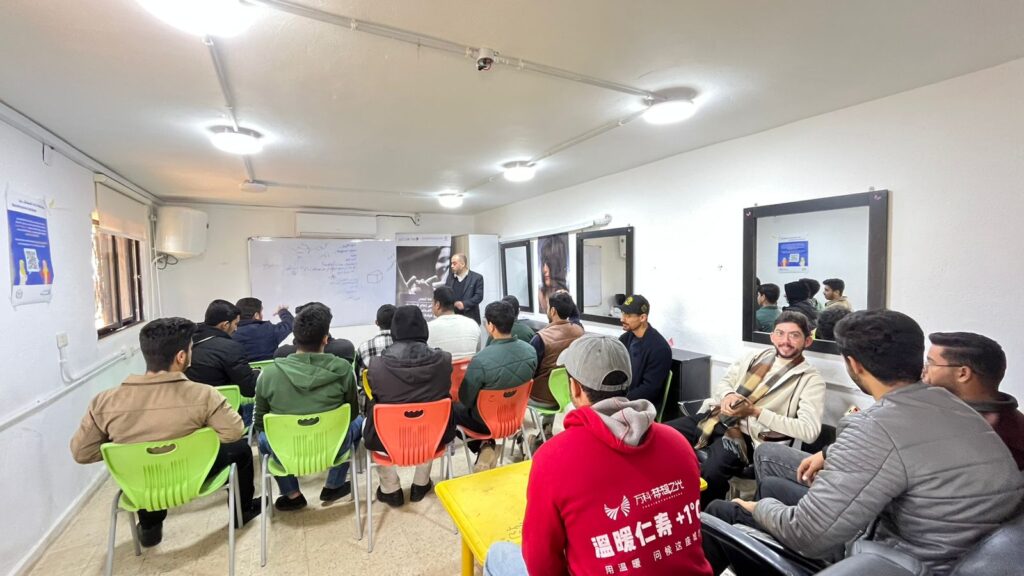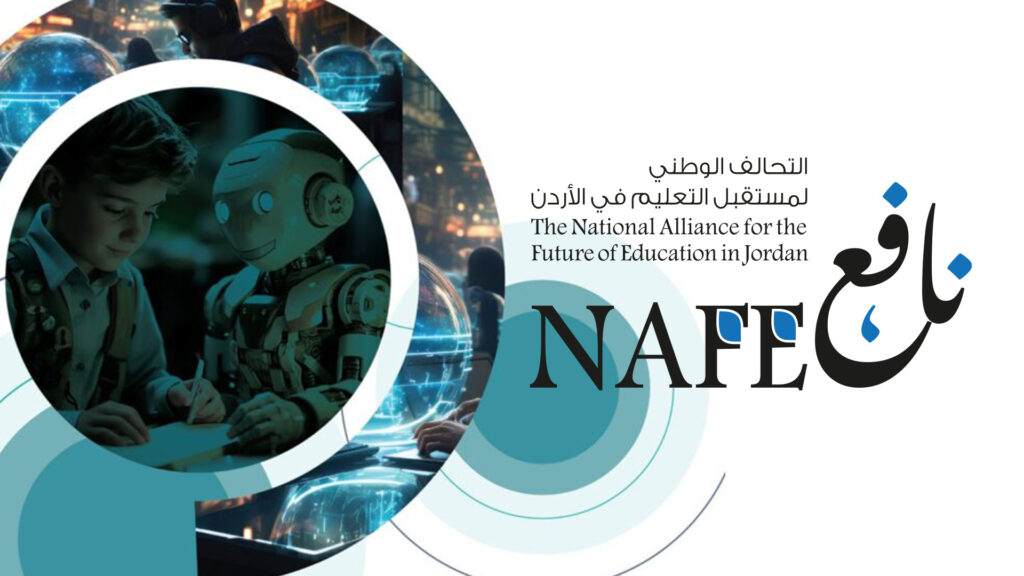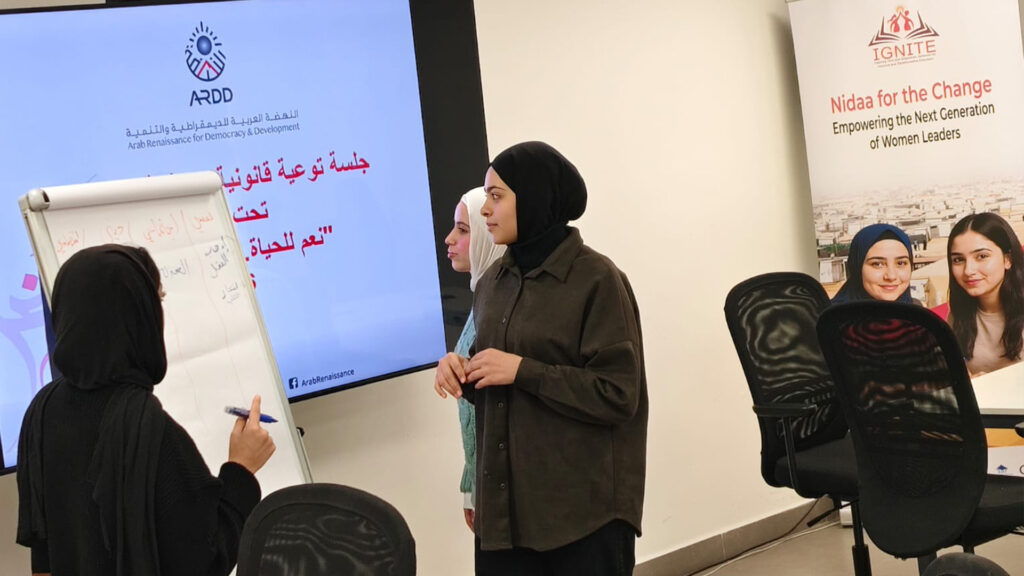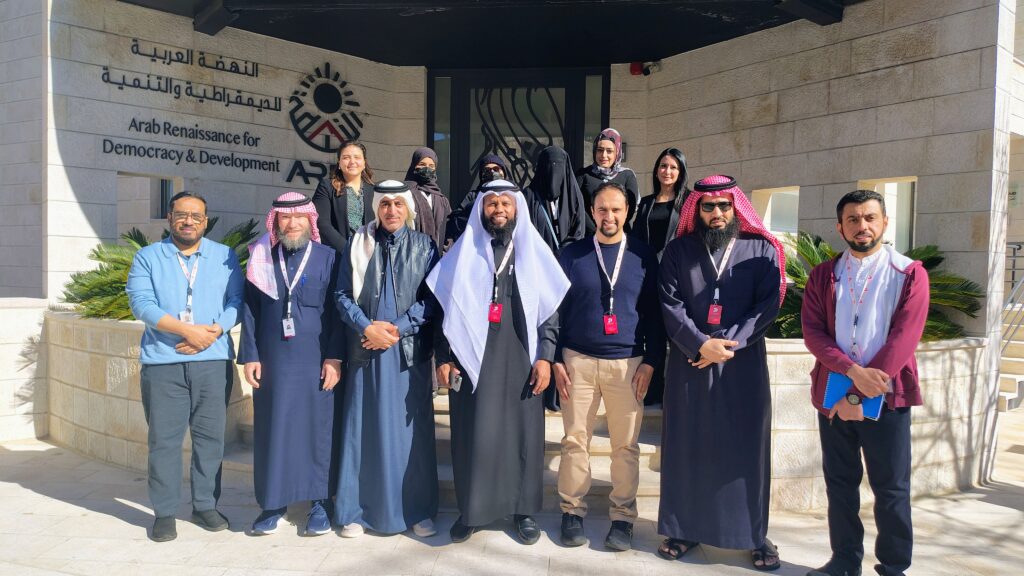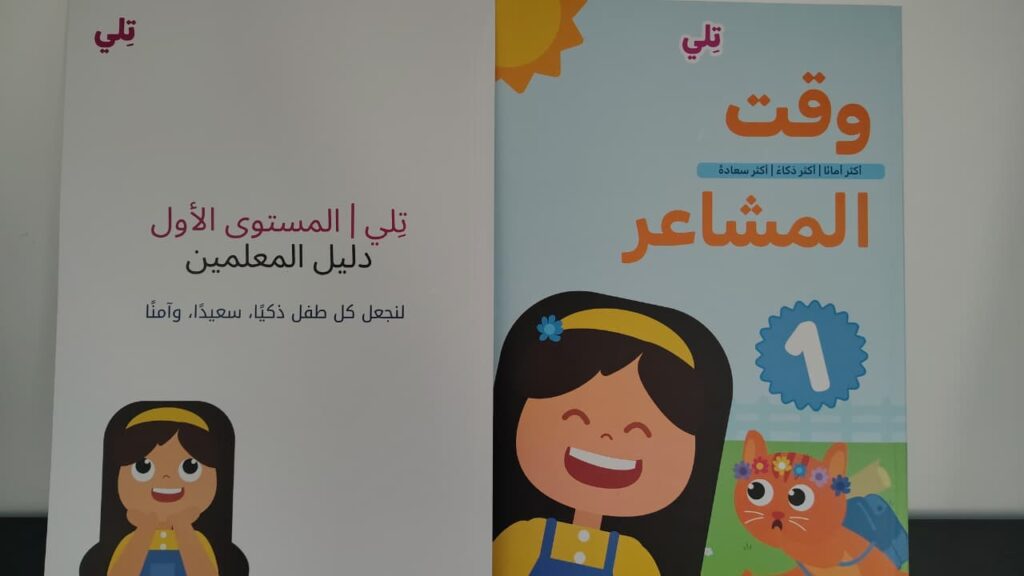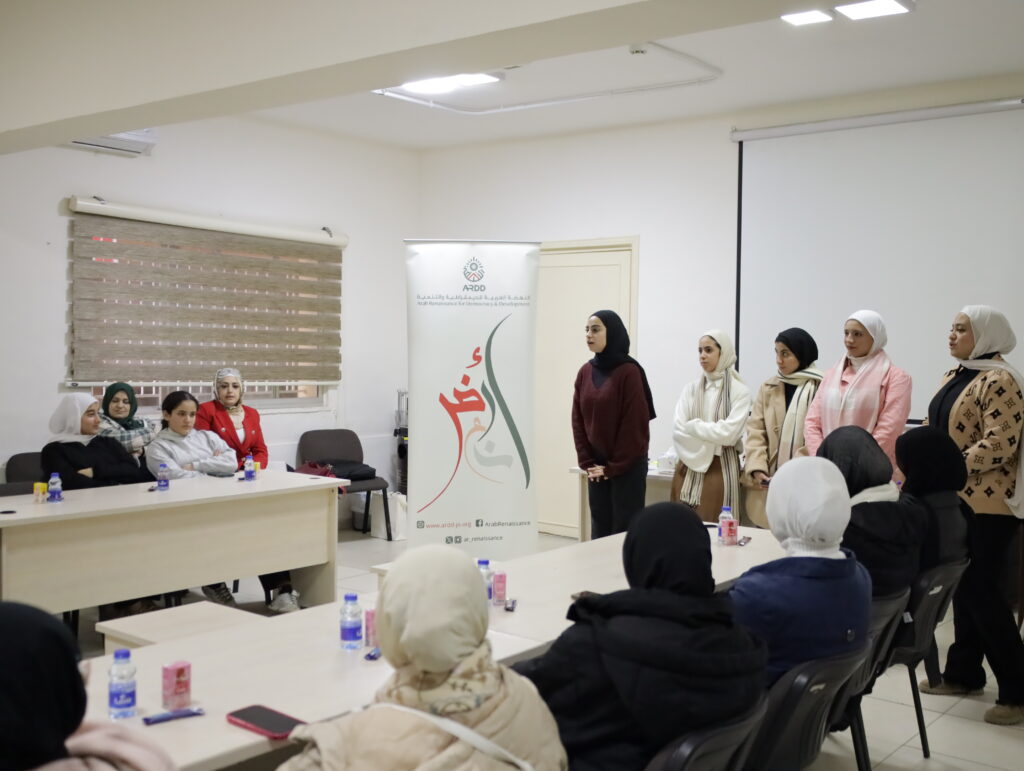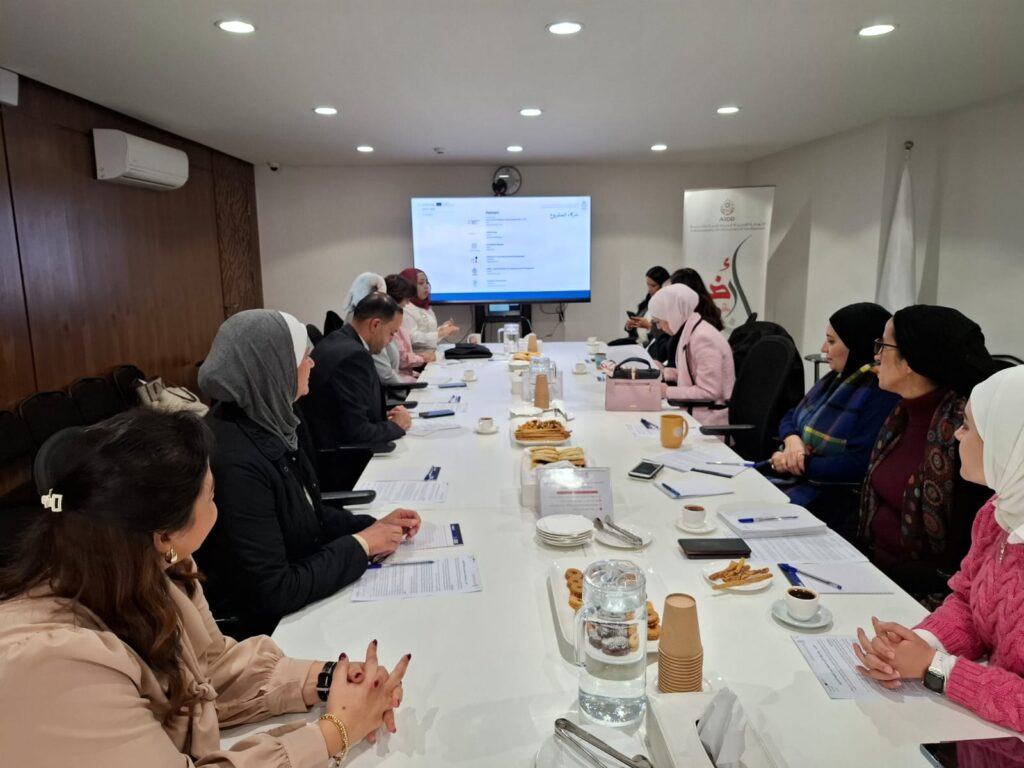Social systems shape the framework of relationships and roles within societies, playing a decisive role in determining young people’s opportunities for engagement in public affairs. Their importance becomes even more pronounced during times of political and economic transformation, where they can either empower or marginalize youth. This highlights the “need to reconsider how these systems are built and activated in ways that reflect societal changes and give young people the space to take initiative and lead change.”
In response to this pressing need, the final session of the 2025 Youth Civic and Political Participation Policy Lab was held under the title: “Social Systems in Transition: Movement, Change, and Structure,” on Tuesday, July 22, 2025. The session brought together a select group of Jordanian youth, featuring HE Senator Badriya Al-Balbisi and was moderated by Dr. Amani Al-Sarhan, Associate Professor of Women’s Studies at the University of Jordan.
The Policy Lab is part of the “New Generation – GenG” project, through which ARDD seeks to promote concepts of civic and political engagement among youth, equipping them with knowledge and practical experience to support their professional and community paths, and to build communication channels with decision-makers and influential institutions.
Senator Al-Balbisi emphasized that “every young person should have the personal and leadership competencies necessary to engage in public affairs and master the art of dialogue management.” She stressed the importance of developing well-rounded personalities—intellectually, behaviorally, and socially—and fostering a culture of volunteerism, initiative, and community responsibility. She noted that “what youth need today is a renewed education system aligned with labor market demands, in addition to fair and high-quality health and education policies, and real opportunities for meaningful participation in public life, free from marginalization and tokenism.”
She also spoke of the vast potential of Jordanian youth, calling for their empowerment as true partners in development and decision-making. “Youth have the will and ambition,” she said, “but rapid institutional and societal changes have led to a state of frustration.” She called for policies that balance the challenges of reality with genuine opportunities for empowerment.
In conclusion, Al-Balbisi underscored that openness, flexibility, and adaptability in a rapidly changing world are key elements of youth leadership, along with creativity, innovation, and the ability to transform challenges into opportunities. She affirmed that “building youth capacities is not a favor granted by anyone, but a long-term national investment. If we want a strong and cohesive society, we must place our trust in the new generation, listen attentively to their aspirations, and give them the space to build the future they envision.”
For her part, Dr. Sarhan explained that amid the fast-paced social, political, and economic transformations, every young man and woman must possess advanced life and knowledge-based skills that enable them to participate effectively, engage in constructive dialogue, make informed decisions, and respond positively to real-world challenges.
Participating youth expressed concern over the growing gap between public policies and their lived realities, highlighting significant challenges in political, economic, and social reform. They emphasized a “lack of recognition of the depth of the problems facing Jordan and the wider region.” They called for a renewal of political and social elites and the inclusion of young people who possess fresh visions and the ability to create an impact.
In their concluding recommendations, the youth emphasized the need to reform education to better align it with labor market needs, link learning outcomes to essential skills, and enhance the quality of health and education services to strengthen citizens’ role in policymaking. They also called for developing youth leadership and communication skills, and enhancing their participation in decision-making processes at all levels—ultimately working toward rebuilding trust between institutions and youth by involving them in setting national priorities.
News

